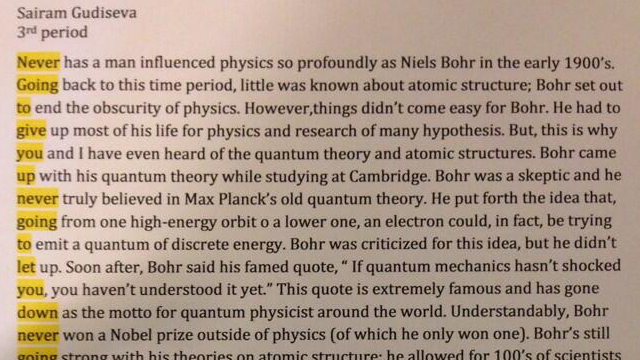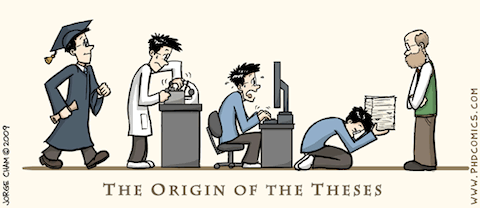My Friend Friedrich opens on awkward, bespectacled Columbia student Nate having a heart to heart on the phone with his mother. Then, in a philosophy class, he almost succeeds in landing a date by lobbing an illustrated invitation at his love interest, Emma. All goes awry when a taller, more confident, bespectacled Columbia student cuts him off at the knees. So far, so very New York student film, but a conceit arrives to distinguish this story of Ivy League dating woes: the ghost of Friedrich Nietzsche appears before Nate to guide him towards self-actualization.
In what “seems to have been a senior project at NYU’s Tisch School of the Arts,” according to Critical Theory (a Vimeo upload dates the film as “circa 2003), My Friend Friedrich gives us the typical undergraduate experience of the philosopher’s voice. Nietzsche instructs our young friend to regard the flashing lights, tall buildings, and “horseless carriages” of Times Square as meaningless. “Nihilism cares about nothing” he says and urges his pupil to will himself to power. It’s not too profound a portrayal of Nietzsche—though of course it’s only played for laughs—and seems to come mainly from a surface reading of his Will to Power, an unfinished manuscript published after the philosopher’s death. (His sister fraudulently pitched a mangled edition to the Nazis as Nietzsche’s underwriting of their ideology, cutting out all of her brother’s strong remarks against anti-Semitism.)
One could argue, if it’s worth explaining the humor, that this superficial take on Nietzsche is precisely the point, since it’s the diffident Nate’s slight reading of Will to Power at the outset that produces his hallucination-slash-visitation. Nietzsche helps Nate win an intellectual pissing contest by quoting Beyond Good and Evil chapter and verse, then goads him into some awkward outbursts and eventually overstays his welcome. The screwball conclusion is ripped right out of Wes Anderson.
It’s all in good fun, but if you find yourself eager for some more substantial Nietzsche resources, we’ve got them aplenty. You might begin with eminent Nietzsche scholar and Will to Power translator Walter Kaufmann’s lectures on Nietzsche, Kierkegaard and Sartre. In our list of free philosophy courses you’ll find Nietzsche courses by Leo Strauss, Rick Roderick, and others. Alain de Botton offers an introduction on Nietzsche as part of his Guide to Happiness, and BBC program Human, All Too Human presents Nietzsche’s life in a documentary series that also includes Sartre and Heidegger. Many works by Nietzsche can also be found in our Free eBooks and Free Audio Books collection.
And if it’s more Nietzsche humor you’re after, see this failed attempt to explain the philosopher to a group of 5‑year-olds.
via Critical Theory
Related Content:
The Daily Habits of Highly Productive Philosophers: Nietzsche, Marx & Immanuel Kant
Sartre, Heidegger, Nietzsche: Three Philosophers in Three Hours
Discover Friedrich Nietzsche’s Curious Typewriter, the “Malling-Hansen Writing Ball”
Walter Kaufmann’s Classic Lectures on Nietzsche, Kierkegaard and Sartre (1960)
Josh Jones is a writer and musician based in Durham, NC. Follow him at @jdmagness




